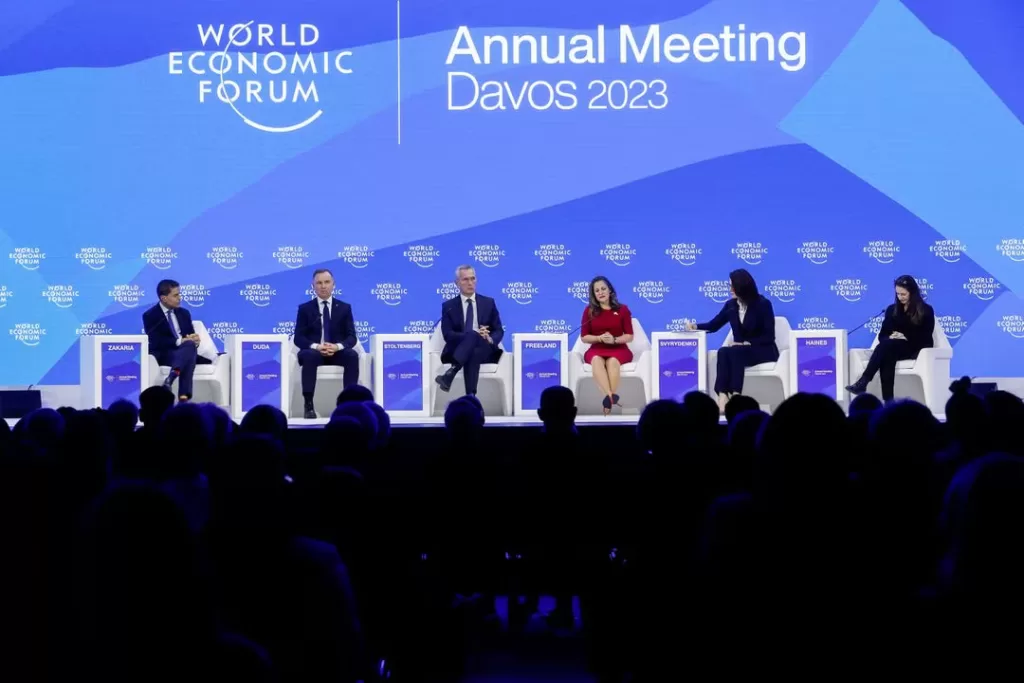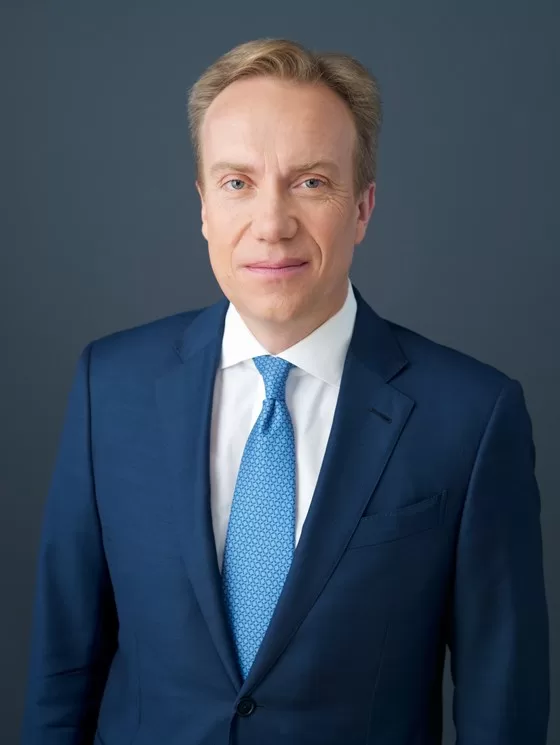President’s Statement
The year was one of contrasts. On the one hand, the world saw instances of meaningful global collaboration: trade between the largest economies reached record highs, progress was made on deepening inter-regional collaboration in Africa, ASEAN and the Middle East, and the UN Climate Conference in Egypt delivered commitments to historic “loss and damage” adaptation funding. Yet, on the other hand, war continued in Europe and economic, security and technology tensions rose between powers.
The picture of global collaboration both in retreat and advancement spoke to the current turbulent, unsettled geopolitical context and a sense that the world is moving at once in opposing directions. The resulting risk of fracture comes at the very moment that time is fast running out for addressing global priorities, when it is crucial we make progress during this “decade of action”. It is within this period of great geopolitical uncertainty, when impactful action is most necessary, that the World Economic Forum identified and delivered avenues towards meaningful collaboration between leaders in the public and private sectors. The World Economic Forum Annual Meeting 2023 in Davos Klosters drew over 2,700 participants, including 44 heads of state and government, under the theme, “Cooperation in a Fragmented World”.
We saw instances of cooperation during the Annual Meeting and over the course of the year, particularly on delivering equitable growth agendas, accelerating climate action and unlocking the benefit of breakthrough technologies. This was all made possible by the Forum’s close work in 845 partnerships – 62 more than the previous year – in combination with a strong retention rate (88%) of the existing partnership base and the continued development of a robust global innovator base which reached nearly 400. The healthy partnership growth meant revenue rose by 5%, placing the Forum on a strong financial footing.
With a challenging economic picture ahead, the Forum convened over 400 leaders in Geneva in May for the Growth Summit that focused on “Jobs and Opportunity for All”. The summit accelerated and launched initiatives to advance growth, trade, jobs, skills and investing. As part of this, additional countries joined the Accelerators Network, which now stands at over 30 countries working with the World Economic Forum to strengthen their economies. The Forum also redoubled efforts to help leaders deliver growth agendas by working closely with the Government of India as it held the G20 presidency. And the Forum helped strengthen regional growth agendas, with the Forum Friends of the African Continental Free Trade Area (AfCFTA) launching the first-ever report by global business on the opportunities presented by the AfCFTA.
A focus throughout these efforts has been on helping leaders shape a more equitable economic landscape. I am so proud that more than 350 million people are being reached with better skills, jobs and education through commitments made as part of the Reskilling Revolution initiative. And the new Global Parity Consortium, a global coalition of 250 CEOs, ministers and other top leaders, is working to renew growth and resilience through diversity, equity and inclusion. To expand opportunity in today’s innovation economy and ecosystem, the EDISON Alliance is working to provide affordable access to digital services to 1 billion people by 2025. It has reached over 450 million people – almost half of its target.

On climate action, at a “now-or-never” moment for making progress on reaching emissions targets, the First Movers Coalition increased its membership from 35 to 80 companies, adding Canada and the United Arab Emirates as Government Partners. The Forum also launched a Chief Sustainability Leaders Community with 60 CSOs to advance corporate action on sustainability transformation. And, the Forum signed an agreement with the Government of the United Arab Emirates in support of the COP28 agenda. These efforts came alongside a focus on advancing nature-based solutions. The Forum signed a new partnership with the Government of Indonesia to support its ambitions to increase blue carbon restoration and ocean conservation efforts and also published the Food, Nature and Health Transitions – Repeatable Country Models report as a roadmap for investment and partnerships to increase technology innovation for regenerative food systems.
A crucial part of delivering growth and accelerating climate action rests on getting the energy transition right. Here, the Forum launched the Coal to Renewables Toolkit, offering pragmatic best practices from coal power producers and regions that have repurposed their coal infrastructure into clean energy. And we launched the Net-Zero Industry Tracker, the world’s first standardized cross-sectorial framework to monitor progress on hard-to-abate sectors’ decarbonization.
The revolutionary development of frontier technologies offers new opportunities, which is why the Forum introduced the Global Collaboration Village, the first global, purpose-driven metaverse platform. But some of these technologies also bring associated risks. The Forum therefore unveiled the Centre for Trustworthy Technology in Austin, Texas (US) to promote the responsible production and use of emerging technologies. We also continued to work with governments and partner institutions to expand the Centre for the Fourth Industrial Revolution Network, with other new centres opening in Telangana (India) and Malaysia. These centres join a global network of 19 worldwide, each acting as national and subnational focal points for unlocking new technology-driven opportunities in a responsible way, with a mechanism to elevate shared learnings and solutions. We also convened 135 cybersecurity leaders at Forum headquarters for the Annual Meeting on Cybersecurity to discuss steps to address global cybercrime, cyber warfare and quantum security.
Achieving these milestones has been possible only through the active partnerships and collaboration of stakeholders from business, government and civil society. That these collaborative efforts delivered impact is testament not just to the strength of the individual efforts but to the model of multi-stakeholder collaboration. I am particularly proud that the members of the younger generation – the Global Shapers, Young Global Leaders and Schwab Foundation Social Entrepreneurs – have been crucial voices, helping deliver impact. This year, the Global Shapers Community reached a milestone by growing to over 500 city-based Hubs.
The foundation of the Forum’s success has been its talented staff who collaborate daily with each other and with Partners to deliver impact. The Forum has long made it a priority to foster professional growth and enrich the employee experience, which is why we increased the learning budget by 45% this past year to CHF 1.4 million. We also invested in our Early Careers Programme aimed at young professionals, hiring 45 participants. We offer an array of development programmes and encourage individuals’ flexibility in designing their development paths. The Forum is proud to be committed to fostering an environment where diversity is welcomed and success is celebrated, enabling employees to thrive and grow.
Perhaps the greatest lesson of the year was that, although the challenges before us are formidable and time is in short supply, the collective strength of stakeholders can deliver remarkable impact. The only thing required is that we work together.




